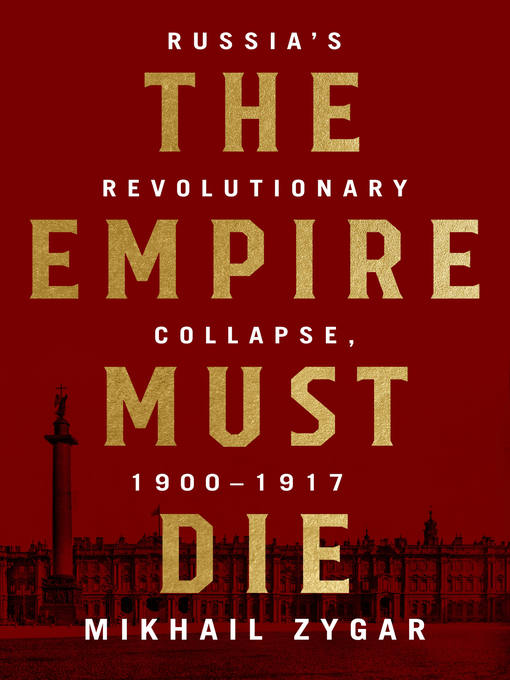
The Empire Must Die
The Brief Flowering and Brutal Demise of Russian Civil Society, 1900-1918
کتاب های مرتبط
- اطلاعات
- نقد و بررسی
- دیدگاه کاربران
نقد و بررسی

October 15, 2017
A vivid, character-driven reconstruction of the period leading up to the overthrow of the Romanovs and the birth of modern Russia. One-time TV host Zygar (All the Kremlin's Men: Inside the Court of Vladimir Putin, 2016) opens with a mild protest: he is a journalist and not a historian and so writes by the journalist's playbook, "as if the characters were alive and I had been able to interview them." Nonetheless, the author commands a powerful depth of historical knowledge and a novelist's knack for sorting through the details to determine what is important and what's ancillary. His book is long on meaningful storytelling in the service of finding out what went wrong in Russia's brief moment of liberalism, an era that snapped shut a century ago. He adds that his characters, who range from rebels to royals, intellectuals to clerics, had no idea how their deeds would play out in history or how small events would turn into big ones. In some senses, the October Revolution began more than two years earlier, with anti-German riots that embraced the Empress Alexandra, "an ethnic German by birth." The riots did not please Alexandra, still less the demands of the crowd that her confessor, Rasputin, be hanged, and still less the popularity of the general who restored order. In a narrative reminiscent of the best of Eduardo Galeano, Zygar raises all sorts of what-if questions in the reader's mind: what if Alexander Kerensky had prevailed over Lenin? What if the old intelligentsia, civil service, and minor nobility had been able to integrate into Soviet society instead of being massacred by Stalin? What if the czarist state had been able to read the tea leaves better and accommodated the demands of the people for better food, better jobs, better government? The possibilities are endless--and endlessly fascinating. An excellent complement to recent work by other Russian journalists who have turned to history, and to brilliant purpose.
COPYRIGHT(2017) Kirkus Reviews, ALL RIGHTS RESERVED.

December 1, 2017
During its centennial year, the world-changing 1917 Russian Revolution has occasioned much reexamination. Journalist Zygar (All the Kremlin's Men) has written a riveting account of the end of the tsarist regime and the uprising in which military, religious, and artistic realms intersect. People involved in the slow crumbling of the empire are evoked in sharply phrased and critical characterizations. Although Nicholas and Alexandra had an epic love, they were deeply flawed. Unable to adjust to the idea that he was not preordained by God to rule and isolated from their peers and their subjects, Nicholas and Alexandra made many mistakes that worsened the political situation. A vivid sense of real-time chaos, confusion, and the multitude of ideas for bringing Russia into the 20th century is well documented in a readable journalistic manner in comparison to a historical perspective found in Richard Pipes's Concise History of the Russian Revolution. Brief footnotes add pertinent parallels to current events in Russia. VERDICT This lively depiction of prerevolutionary and revolutionary Russia will interest both readers with little background who are curious to learn about this pivotal historical time and those who would like a fresh perspective.--Laurie Unger Skinner, Coll. of Lake Cty., Waukegan, IL
Copyright 2017 Library Journal, LLC Used with permission.

























دیدگاه کاربران